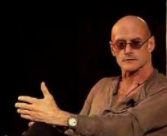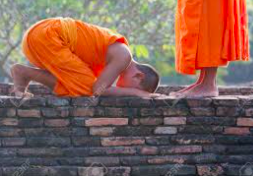Reflections based upon the official opening of the Monash Centre for Consciousness and Contemplative Studies (M3CS).
We all know the benefits of mindfulness. So does that mean daydreaming, or wakeful mind wandering, is a waste of time and something we aim to avoid?
Last week, Ruth and I attended the official opening of the M3CS. Inspiring, memorable and significant! And followed by a forum featuring discussion of the relative merits of mindfulness and mind wandering – very stimulating. So this week, an exploration of daydreaming and more on the new Centre, but first
Thought for the day
Everyone is a genius.
But if you judge a fish
On its ability to climb a tree,
It will live its whole life
Believing that it is stupid
Albert Einstein
The Monash Centre for Consciousness and Contemplative Studies has been functioning and teaching students since early in 2022. It is enabling unprecedented collaboration between the disciplines of philosophy, neuroscience, medicine, psychology, education and interfaith dialogue, while contributing to exciting new research, educational and community engagement initiatives.
One manifestation of the new M3CS is how it brings together like-minded authorities in their fields with somewhat different perspectives, thus enabling a wider dialogue and deeper, more fulsome enquiry.
Evidence of this was demonstrated very clearly in a forum after the official opening where once again, Prof Craig Hassed a doyen of mindfulness – and wonderful colleague and friend - waxed on again about the joys of mindfulness. No problem there. However, by implication, we might think to be mindless, to daydream or in more technical language, to allow or mind to indulge in wakeful mind wandering, could be a waste of time.
Enter Craig’s colleague at the new Centre Dr Jennifer Windt – an advocate of the virtues of letting the mind wander.
Dr Windt is a senior research fellow whose research lies at the intersection of philosophy and cognitive science.
Jennifer seeks to understand what our minds do when left to their own devices, for example when we fall asleep and dream, or when our thoughts and attention wander away from ongoing tasks and activities in the here and now.
Her current research on spontaneous experience in waking and sleep is funded by the Australian Government and she is the author of Dreaming (MIT, 2015).
Here is Jennifer’s proposition : our stream of consciousness is subject to constant change. Conscious experience changes in response to major life events and minor day-to-day and even moment-to-moment occurrences. We can alter our consciousness using psychedelic drugs or certain meditation techniques. And these alterations can be large or subtle, long or short lasting.
Even when our minds are left to their own devices, as they are during sleep, our stream of consciousness is in constant flux. This is also true in waking when our minds wander, our attention drifts away from the here and now, and we daydream, Strikingly, in sleep, our stream of consciousness itself can stop and restart, as we slip from dreaming into unconscious sleep and back again into consciousness. Spontaneous experiences, such as dreaming and waking mind wandering, show that transformation is not just a reaction to external events or the result of deliberate attempts at changing our minds, but part of the very fabric of our conscious mental lives.
Maybe our minds actually do need this “time out” when we daydream?
Maybe as our minds wander, important things actually are occurring?
Maybe these are times when things loosen up somewhat, when there is both time for regeneration, re-calibration and even time for integration?
What we can be sure about is the new M3CS is bringing people like Craig and Jennifer together in a way that collaboratively, and very positively provokes them and others they work with to go even deeper into their fields of knowledge, expertise and research.
The fact that the University and its senior staff headed by the Chancellor, Vice-Chancellor are supporting the emergence of the new Centre so strongly is deeply heartening. The atmosphere amongst the new staff is one of excitement; full of possibility and hope for a better future. May it be so…















